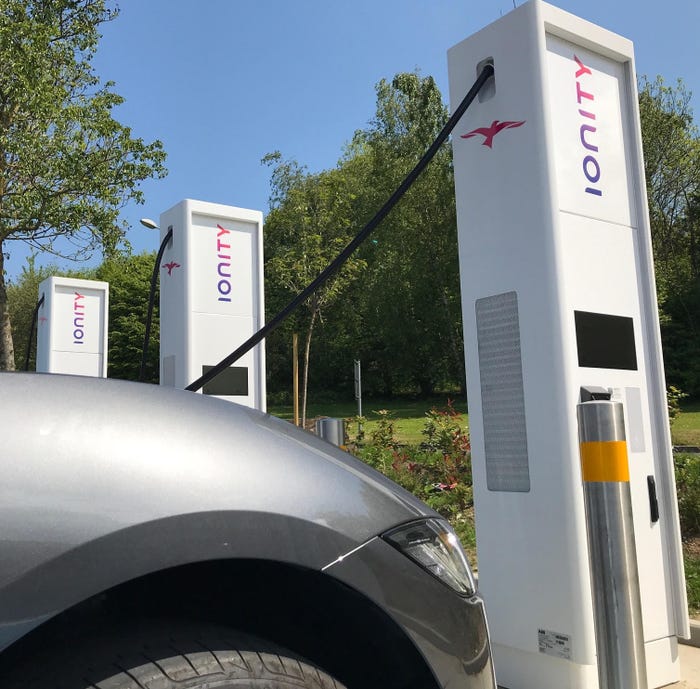Warning: Challenging EV Repairs Ahead
BEVs and PHEVs have more expansive repair issues than ICE vehicles, reports J.D. Power.

As the rate of electric-vehicle adoption grows, franchise dealerships can expect more challenging repairs to roll into their service bays, according to the recently released J.D. Power 2024 U.S. Initial Quality Study (IQS).
Popular opinion is that battery-electric vehicles and plug-in hybrid electric vehicles require fewer repairs than gas-powered ones because they have fewer parts and systems. According to J.D. Power data, which uses an expansive metric for problems per 100 vehicles (PP100), that conclusion is incorrect.
“Owners of cutting-edge, tech-filled BEVs and PHEVs are experiencing problems that are of a severity level high enough for them to take their new vehicle into the dealership at a rate three times higher than that of gas-powered vehicle owners,” says Frank Hanley, senior director of auto benchmarking at J.D. Power.
Gas- and diesel-powered vehicles average 180 PP100 this year, while BEVs are 86 points higher at 266 PP100. While there are no notable improvements in BEV quality this year, the gap between Tesla’s BEV quality and traditional OEMs’ BEV quality has closed, with both at 266 PP100. Tesla has performed better in the past, but that is not the case this year. The removal of traditional feature controls, such as turn signals and wiper stalks, has not been well received by Tesla customers, reports J.D. Power.
Those who wonder if they should step up plans for extensive EV repairs may want to consider the manufacturers they represent. Here is how J.D. Power ranks brand quality:
Ram is the highest-ranking brand overall in initial quality, scoring 149 PP100. Among mass-market brands, Chevrolet (160 PP100) ranks second and Hyundai (162 PP100) is third.
Among premium brands, Porsche ranks highest with a score of 172 PP100. Lexus (174 PP100) ranks second and Genesis (184 PP100) is third.
Besides major repair issues, dealers may expect to hear from all customers about the following annoyances:
What is that warning signal? Often, owners don’t understand what warnings mean. For instance, rear seat reminder technology, designed to help vehicle owners avoid inadvertently leaving a child or pet in the rear seat, contributes 1.7 PP100 across the industry. Some mistakenly perceive it signals an unbuckled seat belt or state that the warning goes off when no one is in the rear seat. Advanced driver-assistance systems, intended to save lives and reduce injuries, are irritating vehicle owners with inaccurate and annoying alerts from rear cross-traffic warning and reverse automatic emergency braking features.
Why doesn’t Android Auto or Apple CarPlay work? Problems with Android Auto and Apple CarPlay remain in the 10 issues. Customers most frequently experience difficulties connecting to their vehicle or losing connection. More than 50% of Apple users and 42% of Samsung users access their respective features every time they drive.
What does this do? In-vehicle controls and displays are the second most problematic category in the study, slightly better than only the notoriously issue-prone infotainment category. This category is particularly troublesome in EVs. Consumers are frustrated by seemingly simple functions such as windshield wipers and rear-view mirrors to the more intricate operation of an OEM smartphone application. The PP100 incidence in this category is more than 30% higher in EVs than in gas-powered vehicles.
About the Author
You May Also Like





.jpg?width=700&auto=webp&quality=80&disable=upscale)